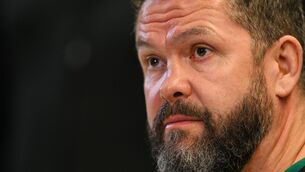We’re struggling to catch up
Seven months out from the World Cup, it’s better we should know these things.
A summer and autumn of discontent in French rugby — they conceded 142 points in three games against South Africa, Argentina and Australia — made them vulnerable and exposed travelling to the Aviva Stadium for the first time despite that impressive win over Scotland last week. Were Ireland capable of taking advantage?















